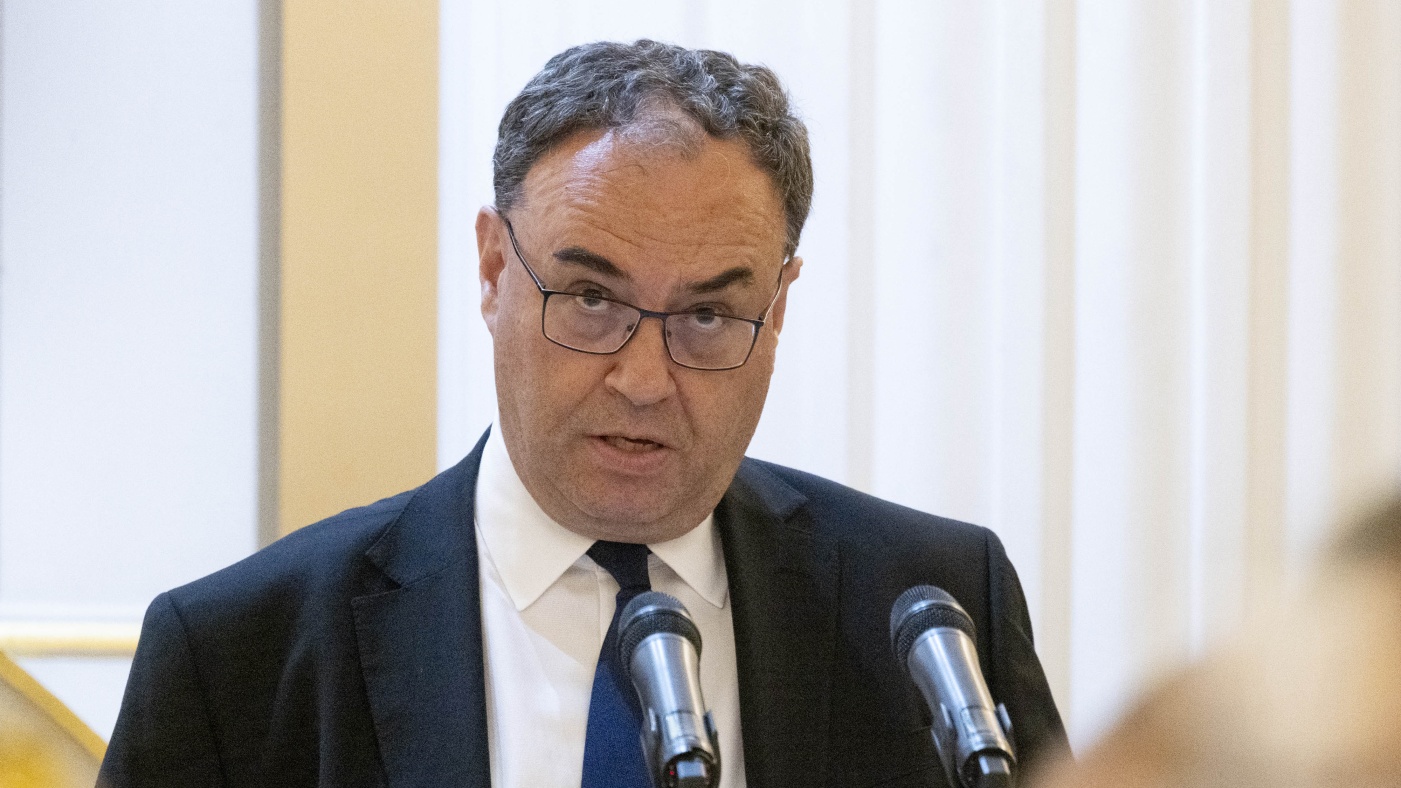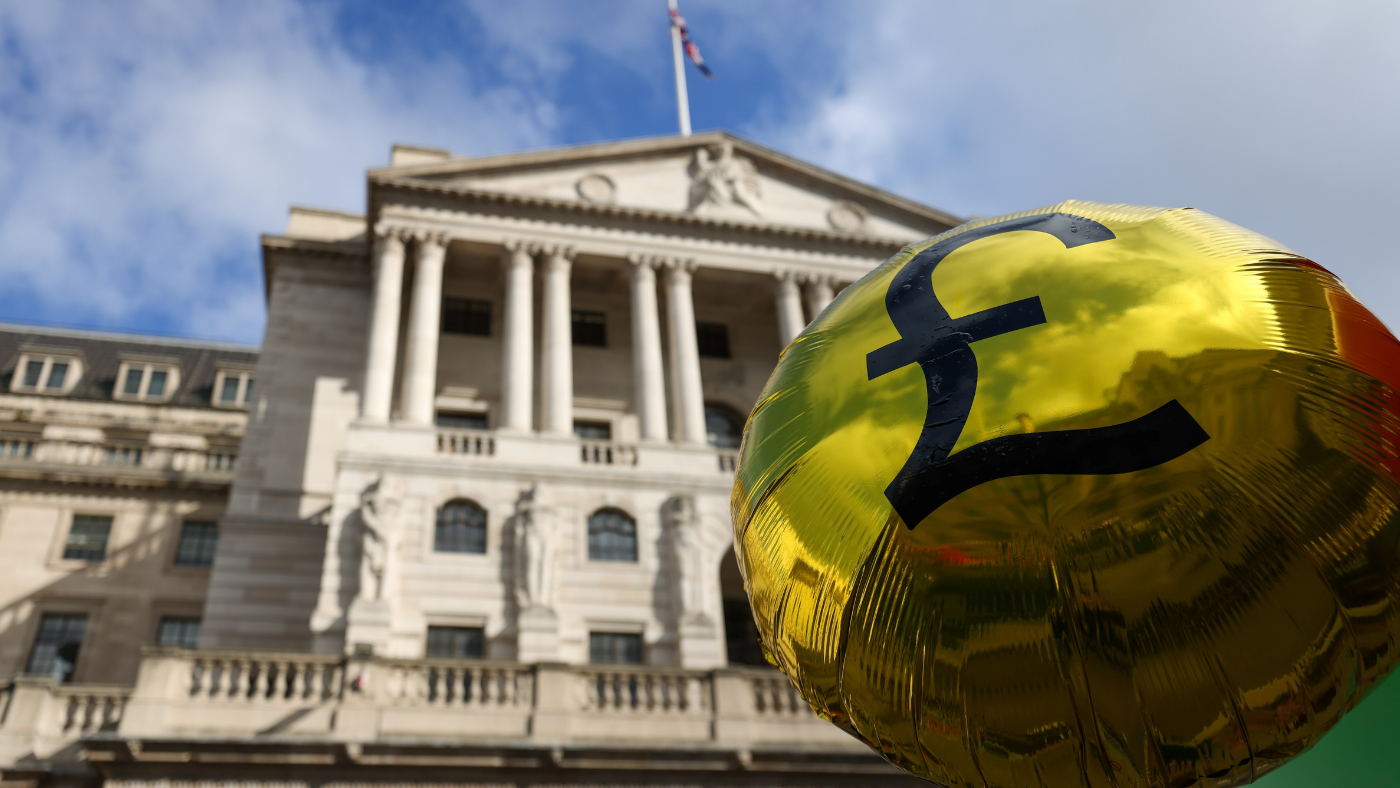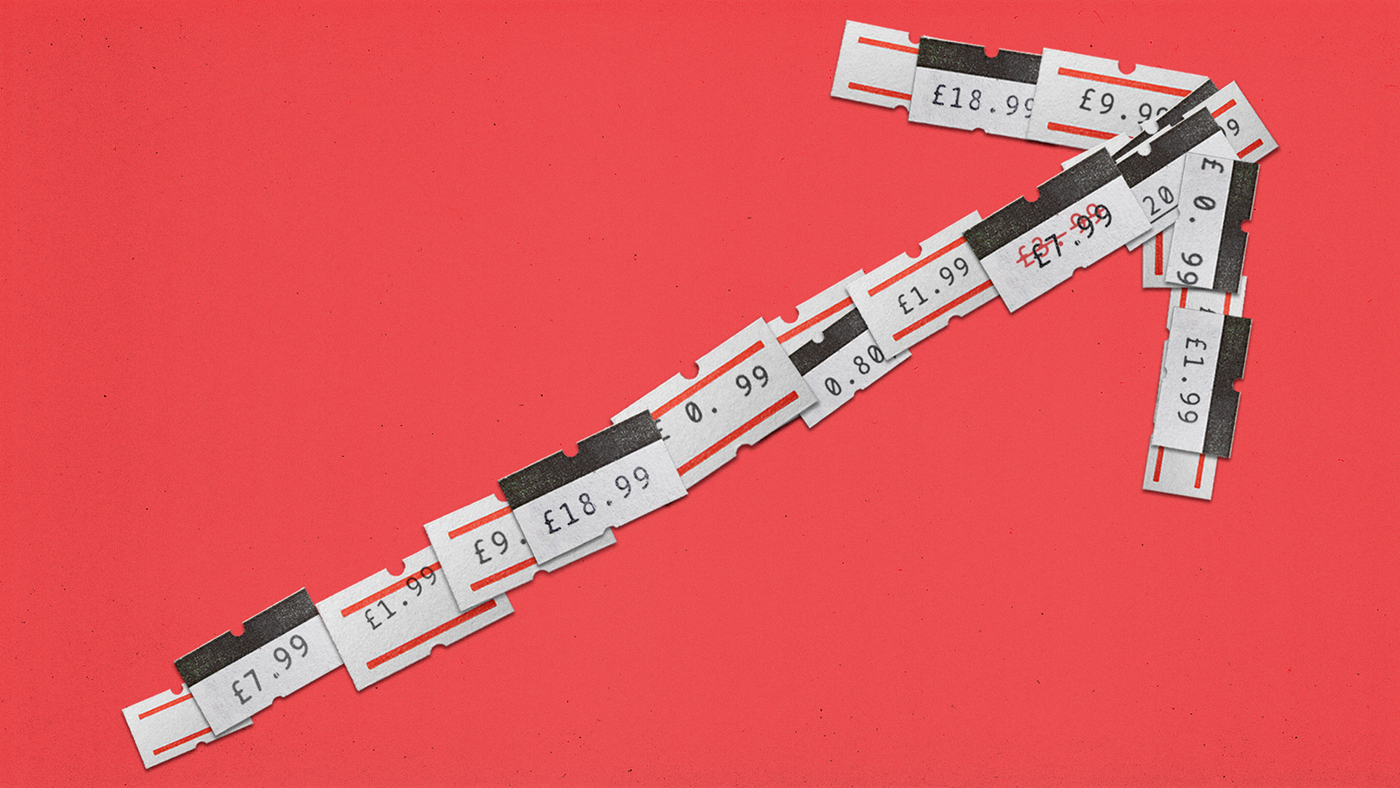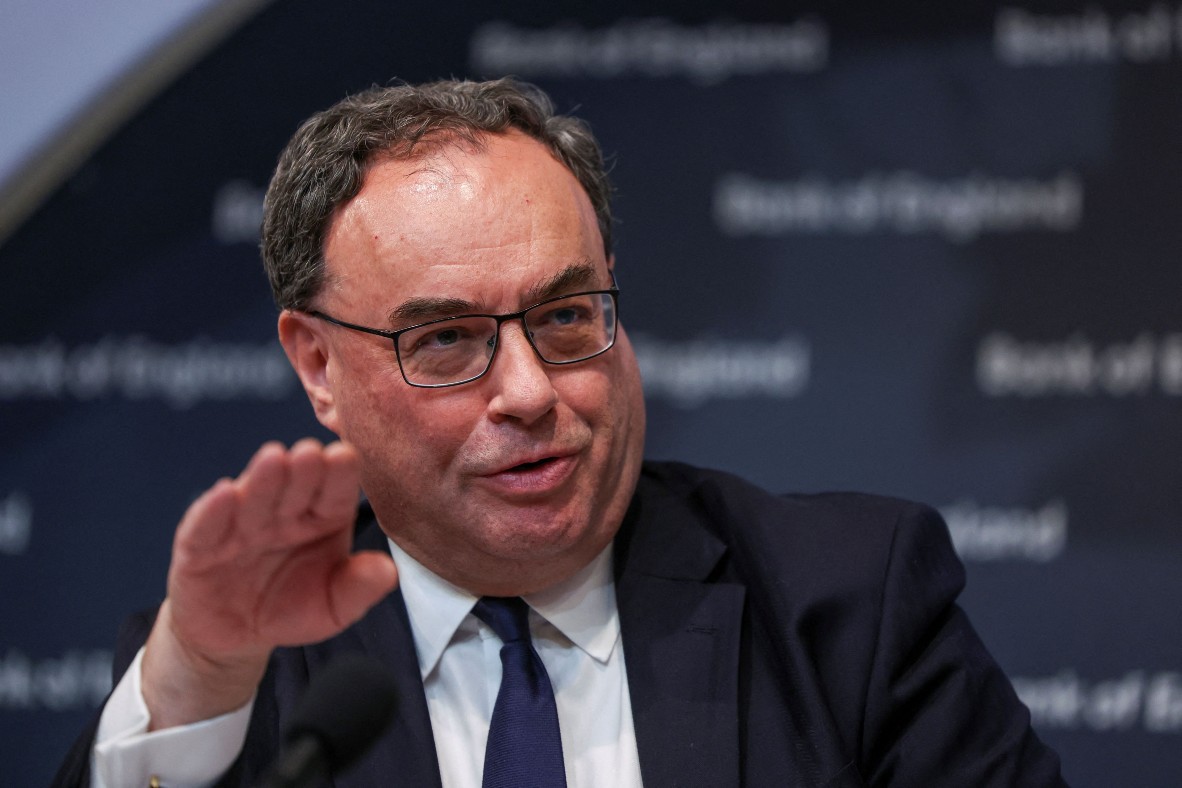Five options to get the UK back to 2% inflation
Some economists believe alternatives to raising interest rates are in the country’s best interests

A free daily email with the biggest news stories of the day – and the best features from TheWeek.com
You are now subscribed
Your newsletter sign-up was successful
Bank of England (BoE) governor Andrew Bailey has said inflation will fall “markedly” this year, as he signalled that the central bank is likely to raise interest rates once again in an attempt to reach its 2% inflation target.
Bailey made the comments at the annual Mansion House bankers’ dinner, attended by Chancellor Jeremy Hunt and Rishi Sunak, insisting that falling energy and food prices would drive down inflation over the rest of the year.
“It is crucial that we see the job through, meet our mandate to return inflation to its 2% target, and provide the environment of price stability in which the UK economy can thrive,” said Bailey in his speech, admitting that inflation was “unacceptably high”.
The Week
Escape your echo chamber. Get the facts behind the news, plus analysis from multiple perspectives.

Sign up for The Week's Free Newsletters
From our morning news briefing to a weekly Good News Newsletter, get the best of The Week delivered directly to your inbox.
From our morning news briefing to a weekly Good News Newsletter, get the best of The Week delivered directly to your inbox.
So far, the government has relied on the central bank to return inflation to the mandated target. The main tool in the BoE’s arsenal is raising interest rates – which it has done 13 times since December 2021 – increasing the cost of borrowing from 0.1% to its current level of 5%.
But with inflation remaining at a stubborn 8.7% in May, the wisdom of the BoE’s strategy has been questioned by some economists.
The Week takes a look at five options available to the UK.
Raise rates again and risk recession
In May, Chancellor Jeremy Hunt said he was comfortable with the central bank doing whatever was needed to bring down inflation, even if that could cause a recession, telling Sky News: “Yes, because in the end, inflation is a source of instability”.
A free daily email with the biggest news stories of the day – and the best features from TheWeek.com
The power to raise interest rates lies with the Bank of England. But the markets are predicting that interest rates could climb to a high of 5.5% by the end of the year, despite rates already being at their “highest level since the middle of the global financial crisis in 2008”, said Politico.
Make changes to tax and spending
One “very unpalatable” option for the government is to raise taxes or to raise taxes and make cuts to public spending – essentially a second round of austerity.
Laura Suter, head of personal finance at AJ Bell, told The Mirror the government could “opt to raise taxes, cut Government spending or cut back on the cost-of-living payments” to “reduce household spending further”. But with households already at “breaking point” this would be a “politically unpleasant” move ahead of a general election.
A policy paper presented to HM Treasury last autumn made the argument for the UK to address inflation through fiscal policy rather than relying solely on interest rate adjustments. The paper, by Cambridge economics and history fellow Charles Read, highlighted the potential risks of rapidly raising interest rates, including the possibility of a financial crisis in the shadow banking sector.
Instead, fiscal policy changes such as reducing value-added tax (VAT) could directly impact prices without destabilising the banking sector, he suggested. Funding these measures could involve eliminating tax benefits primarily benefiting the wealthy, such as the capital gains tax discount.
Quantitative Tightening
Another tool the BoE could consider is increasing its quantitative tightening (QT) programme as a means to reduce demand and control inflation.
During the pandemic, the central bank employed quantitative easing (QE) by purchasing bonds and injecting money into the economy, leading to lower interest rates and increased inflation.
Alice Haine, a personal finance analyst at Bestinvest, suggested to The Mirror that if QE was “so effective at stimulating the economy” then QT could “have the reverse effect”. The central bank could accelerate the pace of reducing its government bond holdings through QT, she suggested.
Price controls
This has been a “more successful tack” taken by France, after President Emmanuel Macron capped how much state energy companies could charge their customers last January, with the government subsidising the financial gap, said The Guardian.
The controls were subsequently lifted when gas and electricity prices began to fall, leaving inflation in France at “almost half the rate” seen in the UK in 2022.
Lower energy prices in Europe have eased overall price pressures, but the cost of food has continued to “soar”, said the Financial Times (FT). Countries such as Croatia and Hungary have introduced food price caps, while France has negotiated a “looser agreement” with food retailers to offer essential items at the lowest price possible.
The UK could consider targeting producers and retailers with price controls to tackle the food inflation rate – a major driver of overall inflation – suggested The Guardian, but it would be “difficult to monitor prices and impose caps in the internet age”.
Give up on the 2% target
It would be a “radical idea” but central banks like the BoE and the Federal Reserve could give up on their 2% inflation targets, said Investors’ Chronicle. Although the BoE makes its case for “low and stable inflation” a 2% target is “relatively arbitrary”.
Economist Olivier Blanchard argued in a 2010 International Monetary Fund paper that policymakers should consider a higher target of 4%, which would give central banks more room to react to economic shocks.
However, the FT’s chief economics commentator Martin Wolf argued that the UK shouldn’t give up on the 2% target, saying “if a country abandons its solemn promise to stabilise the value of the currency as soon as it becomes hard to deliver, other commitments must also be devalued”. Doing so may lead many, both at home and abroad, to conclude that the UK “is unable to keep its promises when things get tough”.
Sorcha Bradley is a writer at The Week and a regular on “The Week Unwrapped” podcast. She worked at The Week magazine for a year and a half before taking up her current role with the digital team, where she mostly covers UK current affairs and politics. Before joining The Week, Sorcha worked at slow-news start-up Tortoise Media. She has also written for Sky News, The Sunday Times, the London Evening Standard and Grazia magazine, among other publications. She has a master’s in newspaper journalism from City, University of London, where she specialised in political journalism.
-
 What to know before filing your own taxes for the first time
What to know before filing your own taxes for the first timethe explainer Tackle this financial milestone with confidence
-
 The biggest box office flops of the 21st century
The biggest box office flops of the 21st centuryin depth Unnecessary remakes and turgid, expensive CGI-fests highlight this list of these most notorious box-office losers
-
 The 10 most infamous abductions in modern history
The 10 most infamous abductions in modern historyin depth The taking of Savannah Guthrie’s mother, Nancy, is the latest in a long string of high-profile kidnappings
-
 The end for central bank independence?
The end for central bank independence?The Explainer Trump’s war on the US Federal Reserve comes at a moment of global weakening in central bank authority
-
 Should Labour break manifesto pledge and raise taxes?
Should Labour break manifesto pledge and raise taxes?Today's Big Question There are ‘powerful’ fiscal arguments for an income tax rise but it could mean ‘game over’ for the government
-
 What are stablecoins, and why is the government so interested in them?
What are stablecoins, and why is the government so interested in them?The Explainer With the government backing calls for the regulation of certain cryptocurrencies, are stablecoins the future?
-
 Will the UK economy bounce back in 2024?
Will the UK economy bounce back in 2024?Today's Big Question Fears of recession follow warning that the West is 'sleepwalking into economic catastrophe'
-
 Interest rates rise to 5.25% for first time in 15 years
Interest rates rise to 5.25% for first time in 15 yearsSpeed Read Inflation is slowing but at 7.9% it remains well above the Bank of England’s 2% target
-
 Why aren’t soaring interest rates bringing down inflation?
Why aren’t soaring interest rates bringing down inflation?Today's Big Question PM pins blame for stubborn inflation on fixed-rate mortgages, but economists say the picture is more nuanced
-
 Sticky inflation and sluggish growth: why does UK economy continue to struggle?
Sticky inflation and sluggish growth: why does UK economy continue to struggle?Today's Big Question Food prices, Brexit and the Bank of England have been blamed for poor economic performance
-
 Is it time for Britons to accept they are poorer?
Is it time for Britons to accept they are poorer?Today's Big Question Remark from Bank of England’s Huw Pill condemned as ‘tin-eared’